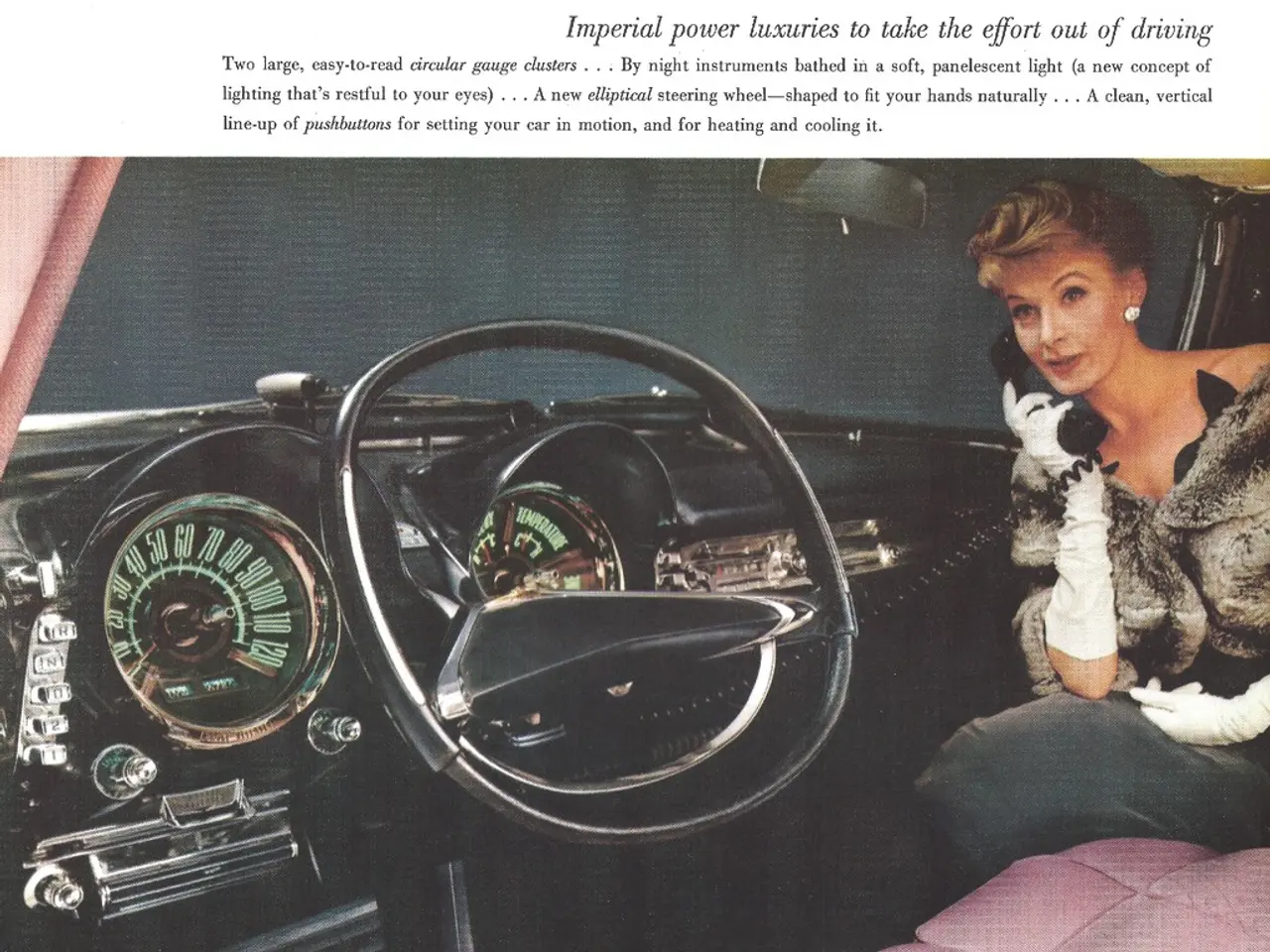Economy struggle for DAX, Puma lays off employees, Volkswagen bucking the downward trend in profits
In the world of international business, Puma is currently grappling with a series of setbacks. The sportswear giant has been downgraded to a "Sell" rating by DZ Bank, due to weaker than expected sales growth and the impact of U.S. tariffs on its costs and profitability [1][2][3].
The second quarter of 2025 saw a 2% decline in currency-adjusted sales for Puma, with steep drops in North America (9.1%), Europe (3.9%), and Greater China (3.9%) [1][2]. These sales setbacks have resulted in a reduced gross profit margin (down 70 basis points to 46.1%) and a second-quarter net loss of about €247 million, including significant one-time charges [2][3].
In response to these challenges, Puma has downgraded its 2025 outlook. The company now expects a low double-digit currency-adjusted sales decline for the full year instead of growth. The company also projects a full-year EBIT loss, attributing this to ongoing macroeconomic uncertainty, tariff impacts (estimated €80 million negative gross profit effect), increased inventory levels, and strategic cost-alignment measures [1][2][3].
To mitigate these issues, Puma is actively working on inventory reduction, supply chain optimization, pricing adjustments, and partner collaboration. Capital expenditures have been cut from approximately €300 million to €250 million for 2025 [1].
Comparatively, the performance of Puma's stock contrasts with more stable or profitable DAX constituents like Volkswagen and Deutsche Börse. While specific comparative stock performance data is not available, Puma's negative financial results and downgraded guidance would likely weigh on its stock price [1][2][3].
Meanwhile, in the German manufacturing sector, both the assessment of the current situation and the outlook improved. The Ifo business climate index in Germany rose slightly in July [4]. However, other German companies like Traton, Volkswagen's truck subsidiary, and Deutsche Börse faced their own challenges. Traton lost 4.1 percent due to a weak US market and missing its annual forecast, while Deutsche Börse lost 1.7 percent [5].
Interestingly, US President Donald Trump indicated a potential trade compromise with the EU might be possible, with chances at "50:50" [6]. This news, if realised, could potentially alleviate some of the tariff-related pressures faced by companies like Puma.
In the European automotive sector, there was a positive reaction to this potential trade compromise with the EU [7]. However, no new information about Puma, Volkswagen, or Traton was provided in this paragraph.
As Puma navigates these challenges, it remains to be seen how it will fare in the coming quarters. The company's resilience and its ability to adapt to the changing market conditions will be crucial in determining its future success.
- The weak financial performance of Puma, as indicated by the second-quarter net loss and reduced gross profit margin, signals a struggle not only in the sportswear industry but also in the broader field of finance and business.
- Despite the improving business climate index in Germany and potential trade compromises with the EU, on-going challenges like tariff impacts, inventory levels, and strategic cost-alignment measures continue to pose threats to Puma's industry position in finance and the business landscape.




